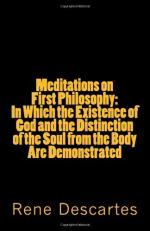spirits. The lungs are like great covers, which
being spongy, easily dilate and contract themselves,
and as they incessantly take in and blow out a great
deal of air, they form a kind of bellows that are
in perpetual motion. The stomach has a dissolvent
that causes hunger, and puts man in mind of his want
of food. That dissolvent, which stimulates and
pricks the stomach, does, by that very uneasiness,
prepare for it a very lively pleasure, when its craving
is satisfied by the aliments. Then man, with
delight, fills his belly with strange matter, which
would create horror in him if he could see it as soon
as it has entered his stomach, and which even displeases
him, when he sees it being already satisfied.
The stomach is made in the figure of a bagpipe.
There the aliments being dissolved by a quick coction,
or digestion, are all confounded, and make up a soft
liquor, which afterwards becomes a kind of milk, called
chyle; and which being at last brought into the heart,
receives there, through the plenty of spirits, the
form, vivacity, and colour of blood. But while
the purest juice of the aliments passes from the stomach
into the pipes destined for the preparation of chyle
and blood, the gross particles of the same aliments
are separated, just as bran is from flour by a sieve;
and they are dejected downwards to ease the body of
them, through the most hidden passages, and the most
remote from the organs of the senses, lest these be
offended at them. Thus the wonders of this machine
are so great and numerous, that we find some unfathomable,
even in the most abject and mortifying functions of
the body, which modesty will not allow to be more particularly
explained.
Sect. XXXVI. Of the Inward Parts.
I own that the inward parts are not so agreeable to
the sight as the outward; but then be pleased to observe
they are not made to be seen. Nay, it was necessary
according to art and design that they should not be
discovered without horror, and that a man should not
without violent reluctance go about to discover them
by cutting open this machine in another man.
It is this very horror that prepares compassion and
humanity in the hearts of men when one sees another
wounded or hurt. Add to this, with St. Austin,
that there are in those inward parts a proportion,
order, and mechanism which still please more an attentive,
inquisitive mind than external beauty can please the
eyes of the body. That inside of man—which
is at once so ghastly and horrid and so wonderful
and admirable—is exactly as it should be
to denote dirt and clay wrought by a Divine hand, for
we find in it both the frailty of the creature and
the art of the Creator.
Sect. XXXVII. Of the Arms and their
Use.




